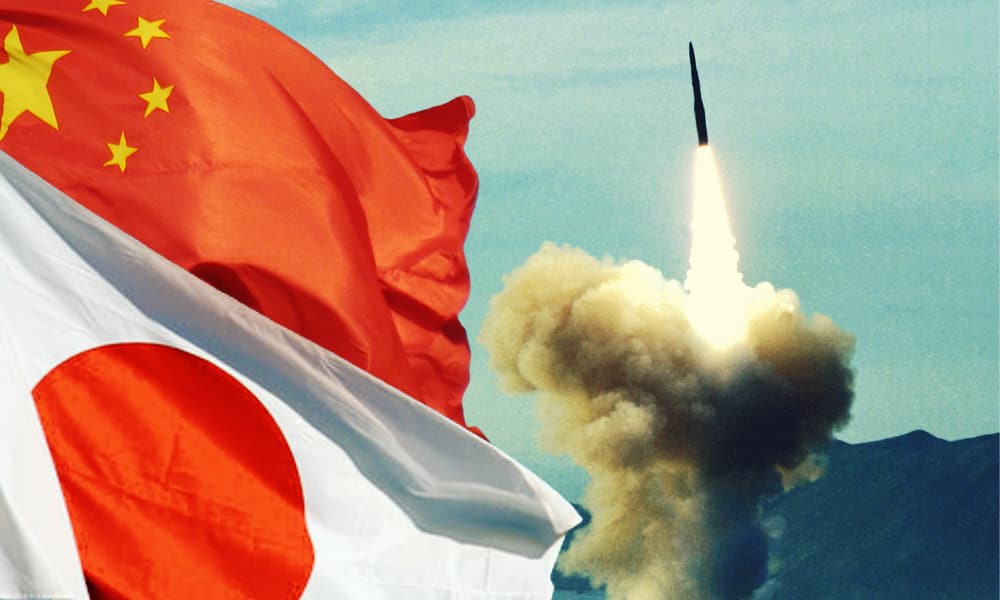Welcome to installment XVII (May 2020) of Sino-Japanese Review, a monthly column on major developments in relations between China and Japan that provides a running commentary on the evolution of this important relationship and helps to put current events in perspective. Previous installments may be found here.
In January’s column, we noted how the positive trend in China-Japan relations had hardly touched the security sphere. China has shown no sign of rethinking the expansion of its maritime activities and the assertive pursuit of its territorial claims that have caused repeated frictions in the East China Sea. It would at this point take a dramatic and almost unthinkable change in strategy to alter Japan’s assessment that China’s military rise is the greatest threat to its security – a threat that needs to be firmly countered.
Tokyo’s deep weariness can be demonstrated by a recent editorial penned by an anonymous “official of the Government of Japan” published in the National Interest in early April. The official bemoaned the U.S.’ naiveté before Donald Trump’s election, emphasizing the “virtues of a confrontational strategy” to deter Beijing from undermining regional peace and stability and expressed hope for the U.S.-Japan alliance to become more explicitly focused on dealing with the challenge posed by China’s growing capabilities and ambitions. This editorial not only reminds us of the extent to which Japan is counting on the U.S. to commit to the role of offshore balancer in Asia against a rising China, but also how unconcerned Tokyo has become with displeasing China by adopting tougher security measures.
In mid-April the Mainichi Shimbun reported that the U.S. and Japan are informally discussing the deployment of intermediate-range ballistic missiles (IRBMs) on the archipelago despite Defense Minister Kōno Tarō stressing the contrary last November. In the same way that China is not afraid to continuously challenge Japan’s control of the Senkaku/Diaoyu islands even in the midst of diplomatic rapprochement, Chinese warnings and protests will do little to prevent Japan agreeing to such a deployment.
Chinese warnings and protests will do nothing to prevent Japan agreeing to such a deployment
This is in stark contrast to the situation for two decades, when the U.S. and Japan were discussing the deployment of advanced missile defense systems over the archipelago. The focus was then on the threat from North Korea and, although Japan was already starting to express concerns about China’s growing military capabilities, it also strived to reassure its neighbor that it was in no way joining efforts to contain it. Concerns with the maintenance of good relations with China were at the time an important factor in Japan’s approach to security cooperation with the U.S.
Nowadays, it is only the Japanese public’s deep suspicion of any move to expand the country’s military activities – with particular concern on the potential of IRBMs to hold nuclear warheads – that is holding Tokyo back from openly discussing the pros and cons of harboring them on Japanese soil.
Even putting aside the danger of IRBM launch sites and their surroundings becoming a target for armed conflict, “provoking” China in this way would nevertheless be a risky bet. Close encounters between Chinese and Japanese vessels in the East China Sea are already a regular occurrence, but there are plenty of ways in which China could further ramp up pressure on its neighbor. A recent incident in the waters surrounding the Senkaku/Diaoyu Islands which saw two China Coast Guard (CCG) ships approaching and chasing away a Japanese fishing boat may be a harbinger of things to come. Meanwhile, at the very end of March, a Japanese destroyer conducting intel-gathering operations 100km off the coast of China was rammed by what was most likely a maritime militia vessel, hinting at the possibility that China might expand in the East China Sea similar to another gray zone operation it regularly conducts in the South China Sea.
For now, the two sides have managed to keep maritime tensions from poisoning the diplomatic atmosphere. The reaction of both governments to the collision at the end of March, for instance, was very sober and matter-of-fact. Yet were Japan to openly support the U.S. in strengthening its side of the military balance in East Asia with the express purpose of confronting China, this separation of security and diplomatic matters could quickly crumble. After all, one if not the major objective behind China’s efforts to engage Japan in recent years has been to prevent too close an alignment between Tokyo and Washington in the context of the worsening Sino-American hostility. Any declaration of Japanese support for IRBM deployment would be a potent sign that this strategy is not working. Only economic ties would then stand in the way of another downward spiral in Sino-Japanese relations.
Antoine Roth is assistant professor at the Faculty of Law of Tohoku University, working on Sino-Japanese relations, China's foreign relations, and East Asian international affairs. He holds a PhD in International Politics from the University of Tokyo and a MA in Asian Studies from the George Washington University and a BA in International Relations from the University of Geneva. He has previously worked at the Swiss Embassy in Tokyo and has been a visiting student at Fudan University in Shanghai.
Andrea A. Fischetti is a government scholar conducting research on Asia-Pacific Affairs and East Asian Security at the University of Tokyo and at the Asia Pacific Initiative. He was a visiting student at the Hiroshima Peace Institute of Hiroshima City University, and a research assistant at the House of Commons in the British Parliament. Mr. Fischetti earned his MA in War Studies from King’s College London, following a BA with First Class Honours in International Relations, Peace and Conflict Studies.






















